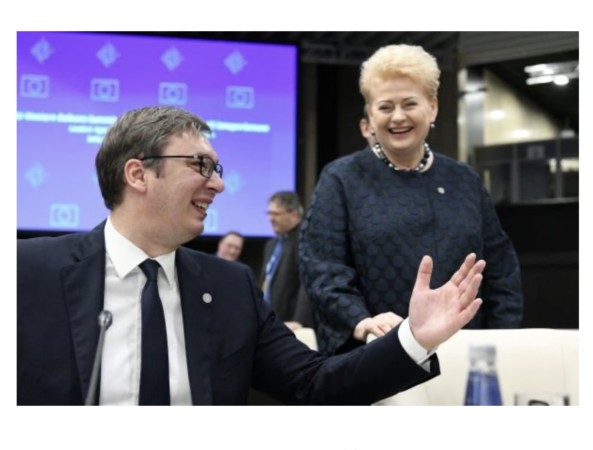Ivana Stradner
Chinese investments, Russian weapons, and European aid are pouring into Serbia, putting it at the frontline of the new great power competition. Even Washington has noticed: last month, the Trump administration dispatched its ambassador to Germany there to reengage the region. The EU’s foreign minister followed a week later. It’s clear Europe and the US don’t want a hostile satellite state in the center of Europe. To prevent it, the key is to resolve the Kosovo dispute.
In the 20 years since Kosovo’s secession from Serbia, the Western Balkans have again fractured along political lines. The US and Europe provide Kosovo with security and aid and receive bases in return. China and Russia have meanwhile fallen in line with Serbia. China has invested over $10 billion there over the last 10 years, trained Serbian police forces, and furnished Belgrade with surveillance technology. Russia has waged disinformation campaigns, funded Serbian nationalist groups, and armed the Serbian military. In October, it temporarily deployed its notorious NATO–killing S–400 missile systems there.
Serbian President Aleksandr Vucic is playing a dangerous game. He wants to use Chinese and Russian investments in his country to secure a better deal with Kosovo, international backing, and, eventually, EU membership. In the process, he risks turning Serbia into an authoritarian island of Russian and Chinese interests in a region where the EU is actively seeking to expand its influence. Serbia borders the EU’s four weakest democracies (Hungary, Romania, Bulgaria, and Croatia), two EU aspirants (North Macedonia and Montenegro), and the failed state–esque tinderbox of Bosnia and Herzegovina. Russia or China could use a Serbian puppet state to create headaches for the West in any of these places.
The Kosovo dispute, which stems from Serbia’s refusal to recognize Kosovo as an independent state, generates perpetual instability that outside powers exploit. It has led to a siege mentality in Serbia, making its people receptive to Chinese money and Russian guns. China and Russia have also gained credibility there by refusing to recognize Kosovo. It has kept both countries poor and therefore corrupt and undemocratic. In short, it has made Serbia and the Western Balkans ripe for foreign, hostile intervention.
Trump and the EU should make clear to Vucic that his attempt to strong–arm them into a bad deal will fail. They should lay out carrots and a road map to reach them, including EU membership, foreign investment, or visa enticements, contingent on Serbia reaching a permanent agreement with Kosovo and achieving certain democratic and legal benchmarks. The West can also use economic and security incentives to bring Kosovo to the table. In the meantime, the United States and the EU should devote more resources to Serbian civil society and Serbia’s neighbors to expand Western influence and bolster democratic institutions.
If the West doesn’t want Russian missiles and Chinese surveillance cameras in its midst, that means exerting some diplomatic and economic pressure to bring this festering Balkans dispute to a close. Doing so would roll back Chinese and Russian influence, help the people of Serbia and Kosovo, and signal that the West is still the Balkans’ most powerful player.






Leave a Reply